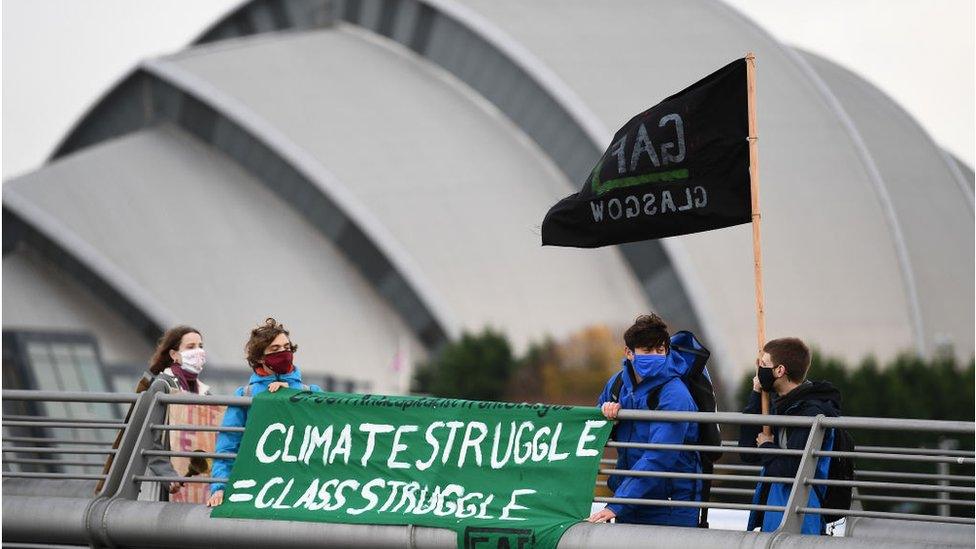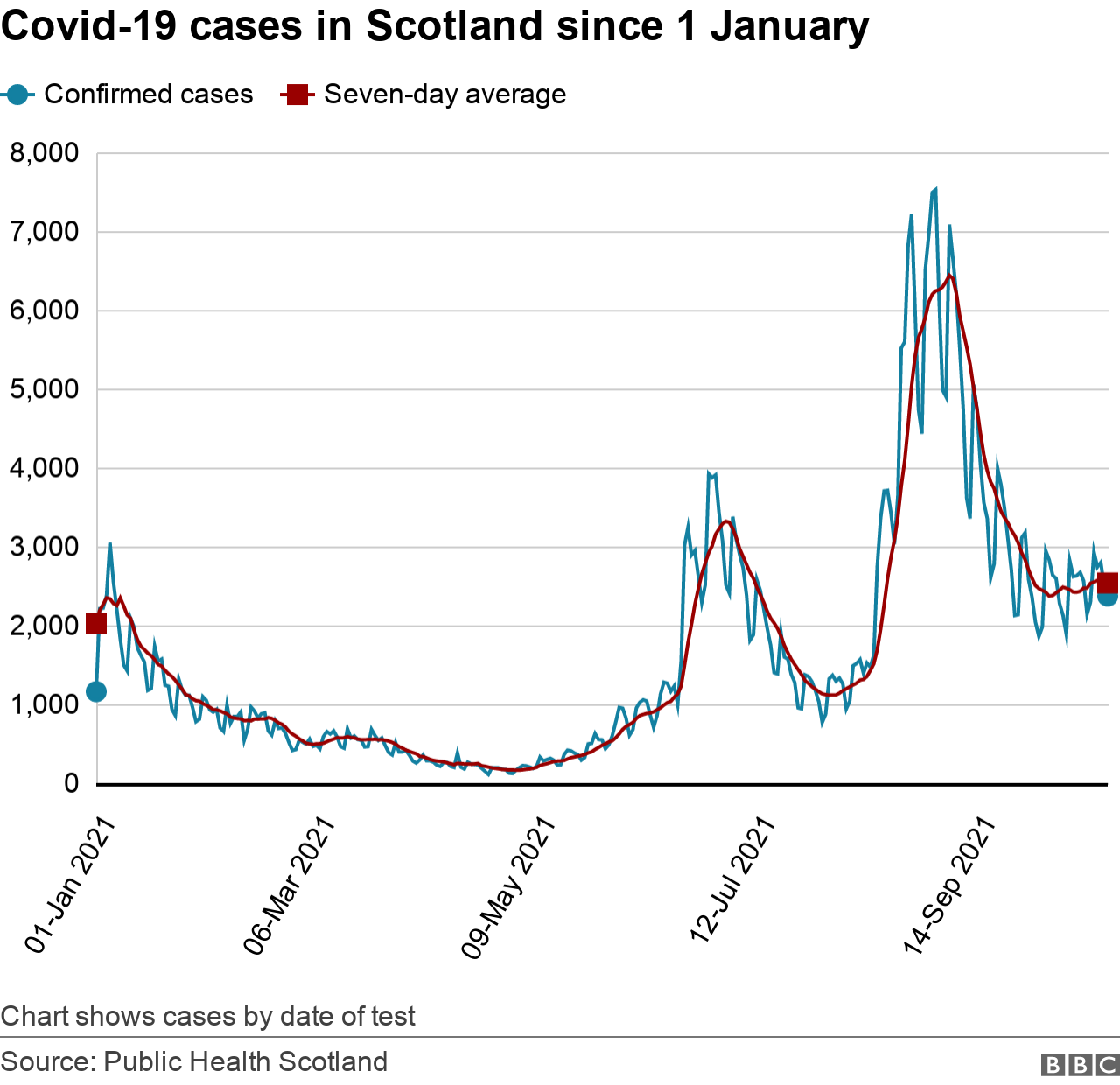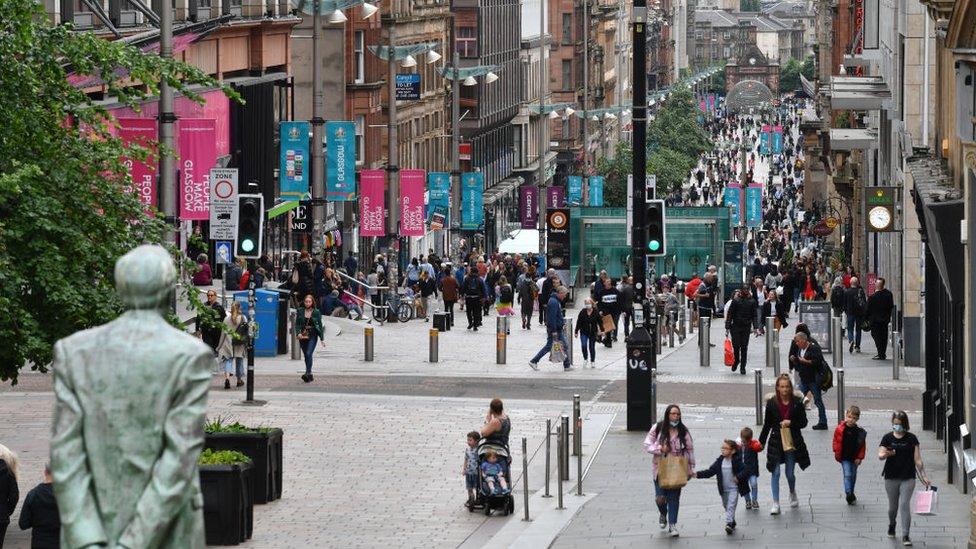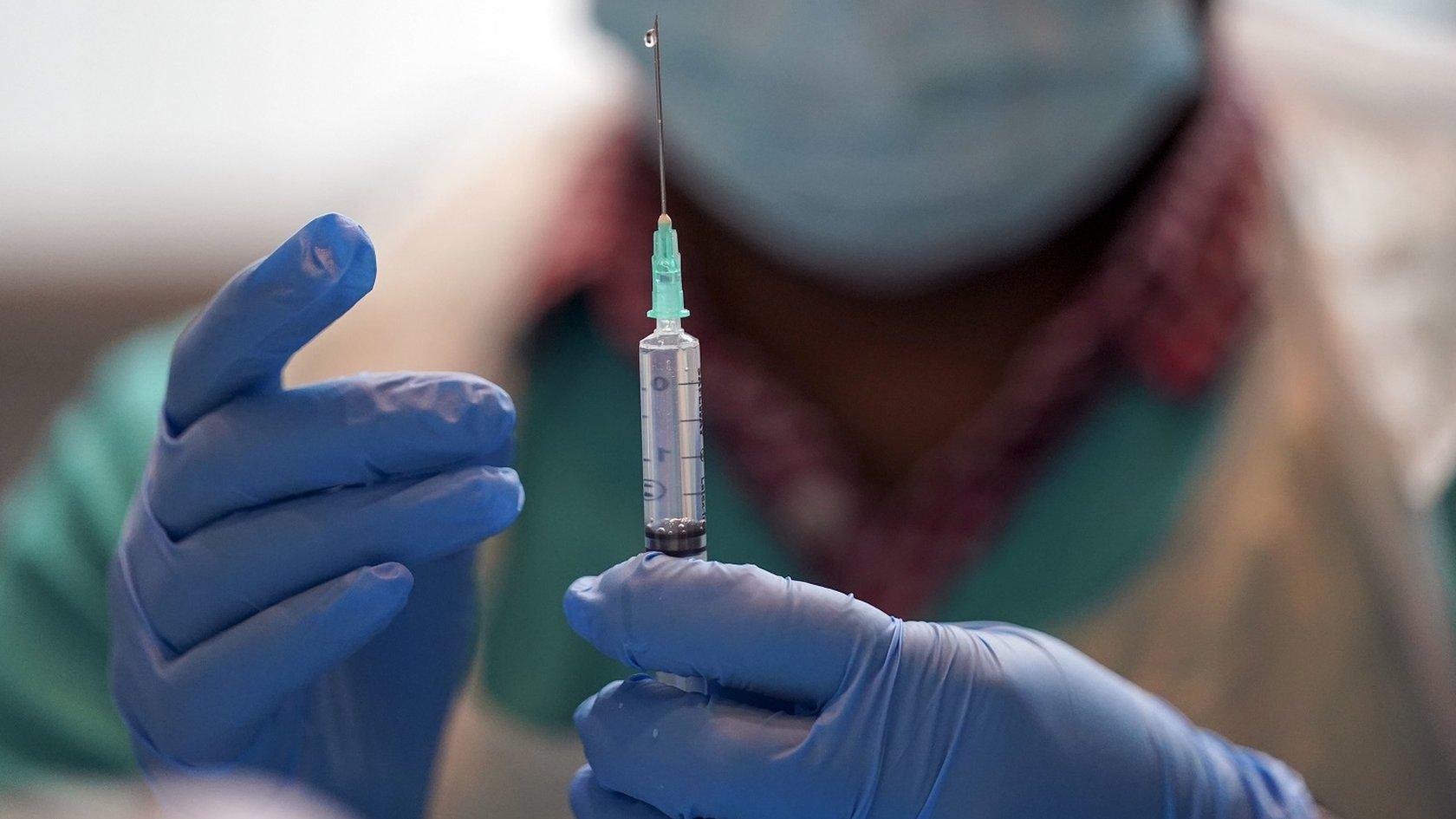Protest events are biggest Covid 'concern' at COP26
- Published

Thousands of activists and protesters are expected in Glasgow for the climate change summit
The spread of Covid by activists around the COP26 climate change summit in Glasgow are a "concern", according to a public health expert.
Prof Linda Bauld said safety measures were in place at the summit itself, but other gatherings posed a greater risk.
An estimated 100,000 people may take part in protests or other activist events during the UN conference.
Infection rates are currently "stable", she said, but a small change could see a return to exponential growth.
Prof Bauld, who advises the Scottish government on reducing poverty and inequality, said the reproduction (R) number is thought to be 1.0 or just below - meaning each infected person infects one other individual on average.
"If things tip one way or the other, behaviour or waning vaccine immunity, concerns about COP - these are all in the mix - it could go above 1.0 again and that's a situation we don't want to be in," she told the BBC's Good Morning Scotland programme.
She said the main summit venue will have rigorous controls in place such as daily testing and face coverings.
"I think the main worry is that there's going to be potentially 100,000 people attending protests or activists, and they're integrated into the city. That's really an unknown," she said.
"They're staying in people's homes. If I were to point to one element of the conference which causes me concern from a purely public health perspective it would be that."
The impact on community transmission of Covid may not be apparent until 10 to 14 days after the summit, she added.
While she was optimistic that lockdown restrictions would not have to be reintroduced she said more progress was needed in persuading still unvaccinated people, particularly in younger age groups, to come forward.
She said an extension of the vaccine passport scheme, which currently applies to large events and nightclubs, should not be ruled out.

New Covid cases in Scotland are much lower than the peak in late August and early September but in recent weeks they have plateaued or even increased slightly.
Scotland's national clinical director, Prof Jason Leitch, said vaccination, testing and following hygiene rules remained the key levers for pushing down "stubborn" infection rates.
"Life should not quite feel normal yet," he said. "It should feel a lot more normal - seeing family, able to go about your business - but it shouldn't feel quite back to pre-pandemic normal."


Related topics
- Published13 January 2023

- Published24 October 2021

- Published26 October 2021
